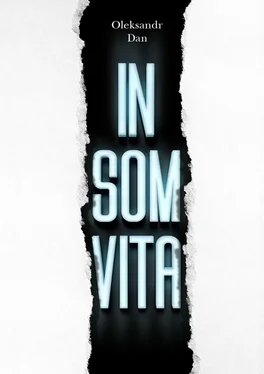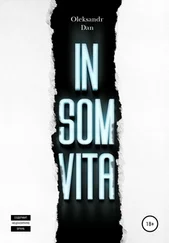The bell ending the lecture rang and the sound of whispering filled the hall. The professor, however, quickly glanced at his watch and monotonously and firmly continued in a raised voice: «In the paradigm of human history, the circumstances that have led to suicide were as different as the people who chose this path, or, more specifically, such an end to their life. This suggests that there are as many solutions in the classification of the circumstances that lead to suicide as there are people.
«However, could such a step change the circumstances that pushed a person to end their life this way? Could this change those who influenced the circumstances that caused the person to make this decision? Doubtful, as people don’t change, for the most part. They can mimic others or pretend to be better than they are under certain circumstances, and they can conceal their dominant identity, but it will inevitably surface over time, as the deception is short-lived.
«Can this step towards self-destruction change the world around us? Unlikely.» The professor paused again and glanced at the audience. «Life, my dear, will continue as before, but the person unfortunately is no longer its active participant, but most likely a passive observer.»
The man remembered this lecture by the philosophy professor at Charles University in Prague, where he studied law, and often thought about it, seeking the answer to his question when his mind was pushing him towards suicide.
There was one circumstance, however, that nullified this whole theory of a causal relationship with suicide.
What if a person is an outside observer to his own life? What if this person, even without having taken this step, is observing himself from somewhere inside his subconscious, with no power to change anything, supplement or alter himself? What if this observation, regardless of the person’s desire, is hanging over his mind like the Sword of Damocles throughout his entire conscious life? What would this last step change then? And could it change anything at all?
Not far away, a taxi with its engine running stood at the side of the road. The Indian behind the wheel was humming a simple folk melody to loud music and smiling.
«Quite the passenger I picked up today,» he mused. «He paid a thousand euro to get to this destitute, god forsaken mountain village.»
The taxi driver had not wanted to drive here, especially up the winding mountain serpentines on the icy road. But he agreed. And not only because the money was good. The taxi driver had seen how several other drivers rejected the customer’s offer and he felt genuinely sorry for this lonely, tired and lightly dressed man.
Yeah, not sensibly dressed at all, the driver thought, looking at his passenger, as he got in at the railway station.
Indeed, he was dressed strangely for this time of year. A thin cashmere coat, black, carefully ironed trousers, and autumn shoes. A thick, navy scarf twisted several times around his neck. His hair was disheveled and he had three-day stubble. And he carried no bag, which was odd for someone leaving a train station.
The road here was extremely slippery. Wet snow had fallen in the evening and turned the smooth asphalt into solid glass by midnight. The road services had not reached this area yet, and the Indian pondered for a while whether to take the trip, but the passenger paid triple the standard fare, including for the trip back, in advance.
Throughout the ride the passenger silently watched the road through the window. It was instantly clear that he did not want to talk, and the taxi driver shoved an old cassette into the player and switched it on.
A low-key, rhythmic melody to the accompaniment of a tabla 3 3 Tabla ( Hindi tablā; Urdu tablah) – Indian percussion instrument. It is a pair of twin drums, the main percussion instrument in Hindustani classical music, played as accompaniment with other instrument and vocals. Tabla also features in dance performances such as Kathak. It is also popular in the countries of the Indian subcontinent.
poured from the speakers. The Indian with a wide snow-white smile on his tanned faced looked in the rearview mirror at the passenger, but the latter paid no attention to him, immersed as he was in his own thoughts and staring gloomily at the trees covered with a thick layer of snow like a soft blanket, which would appear in the headlights and swiftly disappear again into the solemn darkness of the winter night.
Several kilometers before reaching the village, the passenger asked to stop the car.
«Please, stop here, please,» he said hoarsely, looking around. «Right, right… just here. And wait for me, please.»
The passenger exited the vehicle and confidently surged through the untouched snow. It was clear that he wasn’t new to this area, because the visibility was no more than a few dozen meters in any direction. When he confidently stepped into deep snowdrifts, the Indian shivered – he hated the cold.
Almost twenty minutes had passed and the Indian decided to leave his taxi and see where the man went.
Fifty meters from the car, the passenger stood silently on the edge of the abyss, not moving, staring into the distance with his hands in his coat pockets.
The Indian returned to the warm car and slammed the door. He looked at the fuel gauge and shook his head, smacking his lips in dissatisfaction.
The passenger continued to stand like a statue over the river, listening to the loud torrent of its dark waters.
Some weirdo I’ve come across, pondered the taxi driver, shrinking from the cold. It’s night out, freezing and snow, and this guy doesn’t seem to care. What can anyone think about in this cold?
The dark figure of the man, like a pagan idol, towered over the ravine. He tried to understand where the first time ’this’ had happened to him. It was «where’, not «when’, because the exact time was embedded in his memory forever. He also remembered the exact place where ’this’ had happened, and a hundred times he had thought back to that day in the distant past, trying to understand where ’this’ was happening, because knowing the place where everything happened did not give him the answer to the question: in which one of his lives did ’this’ happen for the first time.
He had long become used to not having the answer to the question ’where’. He tried to recreate the situation WHERE EXACTLY everything began so many times, but as soon as it seemed that the answer was attainable and the situation was becoming clearer, everything would instantly recede and become even more confusing and incomprehensible. It seemed as if he was climbing barely visible stairs towards the answer, but the stairs never ended, flowing into more steps and then swerving into the opposite direction. Every next step only made things more confusing, the thread was lost, and everything would return to the beginning.
The man was reminded of the work of the paradoxical world of Maurits Cornelis Escher 4 4 Maurits Cornelis Escher ( Dutch : Maurits Cornelis Escher (17 June 1898, Leeuwarden, the Netherlands – 27 March 1972, Laren, the Netherlands) was a Dutch graphic artist known for his conceptual lithographs, woodcuts and mezzotints, in which he explored plastic aspects of the notions of infinity and symmetry, and also psychological perception of complex three-dimensional objects.
that hung in the hall of the first floor of Les Mondes Office on August Blanc Boulevard in the 13 tharrondissement of Paris. Instead of the mannequins in the picture, where his memory took him, however, he saw himself mindlessly wandering up and down the ungodly stairs without handrails in a world where the laws of reality appeared not to work, just as in his own life. It seemed that the answer was obvious, but turn the picture ninety degrees and everything again becomes unclear and the answer to the question – further away from the truth.
Читать дальше












